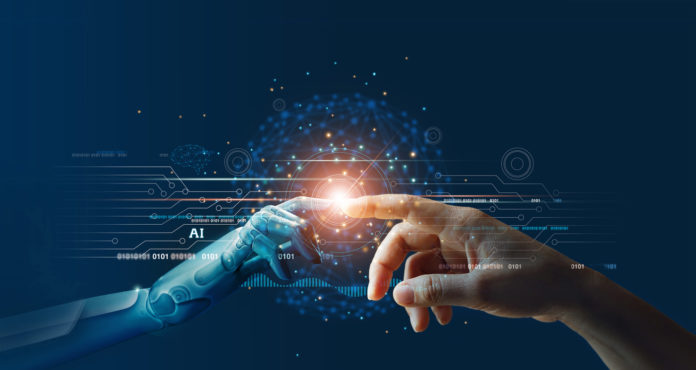Artificial Intelligence is one of the most exciting new technological arenas being developed at the moment. It’s not yet a reality for us to see robots solving, planning and learning just like human beings, though we might have seen films prophesying this sort of thing. But we already live with AI in less advanced forms, for example Apple’s Siri, Amazon’s Alexa, and IBM’s Watson, which are virtual assistants that process our verbal questions and deliver accurate answers. These kinds of advancements not only raise hopes of other powerful AI-driven human conveniences, but also trigger off a sense of foreboding about the potential of AI to replace human workers.
The first AI software program came out back in 1956 and since then, its possibilities have gradually been dawning on us. The practical uses for AI seem to be limitless. One example is in the world of agriculture, where computer algorithms collect data about crops, process the data, to predict the yield of crops, and farming equipment company John Deere has invested in AI for many years now. In the world of medicine, Alphabet has produced a machine that processes retinal scans and even diagnoses medical conditions. More than this, medical professionals recognize the potential for AI to enhance treatment when it comes to heart, brain, or skin scans. This is all aside from less heroic tasks, like serving people refreshments and playing their favourite music, to which the latest home robots are suited. Let’s look at three top AI giants Nvidia, CloudMinds and Amazon, and consider the future potential of their products.
Nvidia
Nvidia is widely viewed as a very exciting and future-oriented company. Their Graphics Processing Unit (GPU, which emerged in 1999, can perform thousands of calculations simultaneously, raising AI standards in the industry. Nvidia’s technology introduced high-level realistic visuals into the gaming industry and even meshes with the cybersecurity sector by improving our ability to detect potential cybercrime.
Nvidia has taken on the task of bridging the gap between western tech developers and those in less developed markets by focusing their AI efforts on helping African farmers protect their crops and maximize their harvests. They have also assisted in identifying illegal fishing boats in Morocco, battling the animal poaching problem in the Seychelles, and monitoring Covid patients in Senegal.
CloudMinds
Established in 2015, CloudMinds primarily produces humanoid robots, named XR-1 and Cloud Pepper, which connect to smart devices. Many of CloudMinds’ smartphone devices offer information security that considerably exceeds the norm. In addition to all the above, their technology is capable of Natural Language Processing, Computer Vision, and vision-controlled manipulators.
CloudMinds made a name for itself recently combatting the Covid-19 virus in China by offering up an easy-to-use, effective, and portable thermometer which facilitated quick screening procedures and high temperature warnings.
Amazon
One of Amazon’s latest offerings in the area of AI is a home robot called Astro which uses cutting-edge deep learning and sensor technology. Astro is reportedly a butler-type robot that monitors specific spaces, detects strangers, plays music, and actually maps out an entire home. For this latter task, it uses SLAM (Simultaneous Localization and Mapping) technology and has, so far, garnered favourable reviews. ‘Astro does SLAM really well. To be able to do it locally and do it so fast, map out the world so quickly – I’m really impressed’, says roboticist Rodney Brooks.
Amazon is already putting AI to work in the running of its business. Its powerful A72 chip makes many AI tasks possible by speeding up visual ID and the processing of voice commands. Amazon has also equipped its delivery vans with AI cameras that keep their drivers safe and within traffic regulations. For example, when a driver is pictured yawning, he will be automatically instructed to pull over to the side of the road to rest.
The bottom line
AI shows all the signs of becoming the next big direction in almost all fields of technology, as investment in AI startups jumped up 21% in 2019 alone. In the markets, the interest in AI technology can cause the type of price movements which may provide both opportunities and risks to those who trade shares of AI companies like Amazon and Nvidia in the form of CFDs, or Contracts For Difference.
Before you trade shares of AI companies as CFDs, it’s important to do your homework. Read the news, follow companies like Amazon and Nvidia, and get a general sense of the trading climate in the technology and AI market. Also, join a regulated broker you can trust to ensure you’re equipped with all the tools, features, and confidence to make informed trading decisions.









